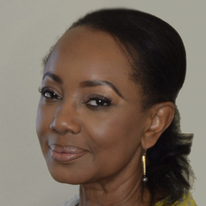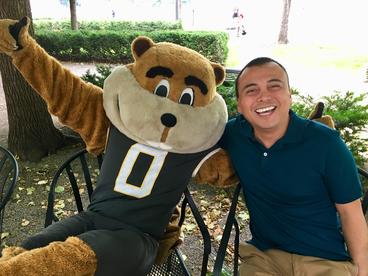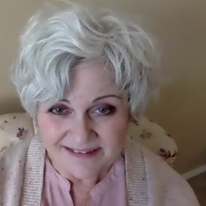December 11, 2020
A Message from the Chair

Professor Phil Buhlmann, chair, Senate/Faculty Consultative Committees
This has been a tough fall semester for all of us, irrespective of whether we are students, staff members, or faculty. The sheer number of topics that came before University Senate governance was extraordinary. As chair of the Senate and Faculty Consultative Committees, I reported twice to the University Senate, addressing a wide range of matters, from decisions on the academic calendar and grading to the newly created Campus Safety Committee; from metrics for the Systemwide Strategic Plan to professional development tools and best practices to support students with disabilities, to name just a few topics. I am glad to point out that President Gabel and Executive Vice President and Provost Croson consulted the various governance committees, and in particular the Faculty Consultative Committee, throughout the year, which I am very thankful for. You will find below a more detailed report on many of these issues, compiled by our dedicated University Senate Office staff, who in these challenging times have been more crucial to well-functioning governance than ever before.
Of course, it is not only governance that had to respond to COVID-19 and the social unrest following the killing of George Floyd. We have all been and continue to be affected deeply, both at work and in our private lives. While not all have felt increased workloads and stress equally, emotional exhaustion and burnout at the end of this semester are widespread. In such stressful times, the ability of the human nervous system to deal with regular challenges is diminished, and we are all a little bit closer to losing our temper or shutting down. Let us be mindful of that, and be kind to ourselves and to one another. And let us give ourselves credit for the remarkable achievements we have made this year under circumstances that that few of us would have ever imagined. I have been impressed again and again by the selfless commitment of so many of you—be it on campus or in seemingly endless successions of Zoom meetings—serving our students, improving our work climate, and advancing the mission of the University of Minnesota in these challenging times.
Thank you for all the work that you have been doing this year for governance and the University as a whole. I wish that the end of the year will give you opportunities to decompress and enjoy the companionship of friends and family, even if that may not always be in person.
The Big Issues
S/N Grading
Student activism fueled a number of discussions around S/N grading this semester, as various students and student groups advocated for a return to the grading provisions offered during spring 2020. In response to a student petition, Executive Vice President and Provost Rachel Croson requested advice from the Senate Committee on Educational Policy (SCEP). A lengthy discussion at a regular meeting revealed that the issue was complicated and multifaceted, so SCEP Chair Professor Thomas Chase called a special meeting to continue the discussion. Provost Croson, mindful of both faculty autonomy and student concerns, proposed a compromise. Among other modifications, this compromise provided that all Fs would automatically be converted to Ns at the end of the semester and students could request the same of D grades. However, faculty would not be required to offer S/N grading and students would not be allowed to take major or minor courses on an S/N grading basis. Continuing to advocate for a full return to the spring 2020 provisions, student senators brought a last-minute resolution to the Student Senate and University/Faculty Senate meetings on December 3, 2020. The resolution was overwhelmingly approved at both meetings. Provost Croson announced a return to the spring 2020 provisions on December 9, effective for fall 2020 and spring 2021.
Board of Regents Policy: Alcoholic Beverages on Campus
The Senate Consultative Committee (SCC) and the Student Senate Consultative Committee (SSCC) provided input on proposed changes to Board of Regents Policy: Alcoholic Beverages on Campus. The proposed changes would allow the University to provide for the sale of licenses and sponsorship rights to alcoholic beverage manufacturers. Currently, the University may license the use of its name or trademarks (like the block “M” or Goldy Gopher) to outside companies to be included on its products such as clothing or other merchandise and in advertising. However, current policy prohibits licensing for certain goods and products such as alcoholic beverages.
Given the rise of the craft beer industry within the state of Minnesota and its ties to the local community and economy, the University is looking to partner with local and national alcohol brands to allow for licensing and sponsorship partnerships. These partnerships would allow for the opportunity to increase revenue to the University through royalties. Eleven of the fourteen Big Ten universities already have alcohol sponsorships or licensing deals and potential sponsorship messaging would only appear inside athletic venues. This proposal was introduced at the December Board of Regents meeting with a potential vote for approval at its February meeting.
A View from the Inside: What About Mental Health?

Professor Aseem Kaul, chair, Social Concerns Committee (left)
Professor Benjamin Munson, chair, Disabilities Issues Committee
This has been, and continues to be, an incredibly difficult time. There are many competing pressures that affect us all—from finances, to academics, to workload. Nevertheless, the health of the University community is, of course, paramount. But what happens when efforts to keep ourselves and each other physically hale put our mental health at risk?
Unfortunately, as we all know by now, many of the responses to the COVID-19 pandemic pit physical health and mental wellbeing against each other in a variety of ways. Many measures designed to limit spreading of the virus—a moratorium on family and social gatherings, remote instruction, shuttering of businesses and recreational facilities, etc.—may also increase the risk of anxiety and depression for some people. Add to that the social justice issues highlighted by the murder of George Floyd and other issues over the summer, plus a highly polarized November election, and the need to pay attention to the mental health of our community has rarely been greater than in 2020.
Both the Social Concerns and Disabilities Issues committees have grappled with this question since the early days of the pandemic, and have spoken with a number of experts and researchers, including Matt Hanson, interim director, Boynton Mental Health; Katherine Lust, director of research, Boynton Mental Health; and Krista Soria and Daniel Jones-White of the SERU Consortium and Office of Institutional Research. Early research from the SERU Consortium and Boynton Mental Health confirm what we already suspected: the number of students experiencing anxiety, depression, and other mental health concerns is up across the board. In fact, according to a SERU policy brief, “based on PHQ-2 and GAD-2 screening tools, 35% of undergraduates and 32% of graduate and professional students screened positive for major depressive disorder, while 39% of undergraduate and graduate and professional students screened positive for generalized anxiety disorder.” Furthermore, “the prevalence of major depressive disorder among graduate and professional students is two times higher in 2020 compared to 2019 and the prevalence of generalized anxiety disorder is 1.5 times higher than in 2019”1.
Isolation, job/income loss, caregiving responsibilities, teaching responsibilities, and the challenges of remote learning—not to mention worry over the pandemic itself—are just some of the stressors cited by students in the SERU Consortium’s COVID-19 impact survey. Given the broad impacts that the pandemic has had on society, it is not surprising that many staff and faculty are also experiencing mental health challenges2. Moreover, the research shows that these increases, as with many other aspects of the pandemic, disproportionately affect marginalized populations such as people with disabilities and people of color.
While all this is deeply concerning, our conversations also suggest cause for hope. As always, our University community has risen to the challenge, finding creative ways to serve the mental health needs of our students. Even as the pandemic has forced us to work and learn in different ways, educators and administrators throughout the system have embraced these changes, finding workarounds that are not only effective, but, in some cases, better. Things that were deemed impossible, impractical, or inefficient a mere nine months ago—such as flexible and remote working arrangements, multiple course delivery methods, flexible assignments and methods of assessment, and telehealth—are now part of daily life. The increase in the percentage of people experiencing mental health issues, while certainly undesirable, may lead to increased empathy for those who struggled with mental health before the pandemic, and those who will continue to struggle after it. Knowing that these challenges affect all members of our community—students, staff, and faculty alike—has the potential to make us all more empathetic, and to see our seemingly disparate lives and jobs as being part of a common mission.
Much remains to be done, of course, and there are no easy answers. Each student’s needs are different, and solutions that work for one person may negatively impact others. While many students struggle with remote learning, some like it. Some find it comforting to be at home among family, while for others, family is a source of stress. Access to mental health services via telehealth has been expanded, making it more readily available to some students who live in rural areas, but this has brought to light other barriers to therapy-from-home, such as lack of reliable internet access and a safe, private place to talk to a therapist. In fact, despite the increased need for services, Boynton Mental Health reports being under capacity, likely due in part to some of these factors. Clearly, helping our students (and our colleagues, family, friends, and selves) through these times calls for more than a one-size-fits-all solution; it calls for flexibility, empathy, and creativity from us all.
We have very little control over this pandemic. Until a vaccine is widely available (which thankfully seems to be on the horizon), the novel coronavirus is not going anywhere. It is critical, until then, to maintain the measures put into place to curb its spread. But we do have power over how we react, and what we learn from this pandemic. Let’s pull together and support each other. Let’s practice radical compassion. Let’s pledge to be extra attentive to those around us, and to extend a helping hand to those of us who may be struggling. Let’s hold onto the lessons we’ve learned during this ordeal, and ensure that when we can once again gather in person (and sing, and hug, and play football!) our community emerges stronger, kinder, and more equitable.
___________________
1 Igor Chirikov, Krista M. Soria, Bonnie Horgos, and Daniel Jones-White, “Undergraduate and Graduate Students’ Mental Health During the COVID-19 Pandemic” (SERU Consortium, 2020), 1.
2 Charlie Braich and Kathy Wise, “Comparison of how faculty and staff have experienced their institutions’ responses to COVID-19” (HEDS Consortium, 2020).
University Senate Governance Working For U
Faculty Consultative Committee (FCC)
Fall semester 2020 has been unlike any other and will undoubtedly go down in history as memorable for a multitude of reasons. The FCC worked tirelessly to address myriad issues that required its thoughtful attention, not only throughout the fall semester but during summer 2020 as well.
Topics of discussion included moving the Twin Cities spring break week from March 8-12, 2021 to April 5-9, 2021, and extending modifications to the S/N grading option for fall 2020 and spring 2021. The FCC’s input was also solicited on reconstituting a committee to review the University’s liberal education requirements; the metrics to be used for measuring the success of the Systemwide Strategic Plan; efforts out of the Office of the Vice Provost for Faculty and Academic Affairs on advancing faculty diversity, equity, and inclusion; and the University’s comprehensive review of public safety on the Twin Cities campus. Additionally, the FCC was consulted on a number of policies including Administrative Policy: Outside Consulting and Other Commitments, Board of Regents Policy: Alcoholic Beverages on Campus and various educational policies.
Student Senate Consultative Committee (SSCC)
Unsurprisingly, many of the issues the SSCC looked at this semester stemmed from the direct and indirect impacts of the COVID-19 pandemic. The committee conducted a systemwide survey to gauge the opinions of fellow students on the re-opening of classes to start the semester and better represent those values. The Twin Cities Delegation of the Student Senate met with multiple stakeholders for conversations regarding the student experience on campus, which included issues of student housing, campus dining, COVID-19 testing and guidelines, and possible repercussions for violations of the guidelines. The SSCC and full Student Senate also met with Executive Vice President and Provost Rachel Croson regarding the issue of S/N grading and passed a resolution at its December meeting calling for the University to expand its policies regarding grading similar to those applied in the spring semester of 2020.
Additionally, the SSCC began a yearlong process of addressing issues of diversity, equity, inclusion, and social justice in the wake of the killing of George Floyd and the subsequent protests over the summer. This work included the adoption of a statement of principles meant to serve as a framework to ensure that any legislation that passes through the Student Senate has the goals of creating a better University community for historically underserved and marginalized populations. SSCC Chair Briggs Tople also established a Student Senate Task Force on Research and Review on Institutional Racism and Marginalization. The purpose of this task force is to conduct a comprehensive review of the University’s policies, practices, and systems to identify institutional racism rooted within the University in order to recommend specific changes to current University policies for the Student Senate to consider.
P&A Consultative Committee (PACC)
During a busy and challenging fall semester, the PACC continued its work of representing and advocating for the nearly 7,000 P&A staff at the University of Minnesota.
PACC Chair Erin Heath and Chair-elect Scott Creer met frequently with Ken Horstman, interim vice president, Office of Human Resources (OHR), to advocate for the consistent use of the non-renewal program for P&A staff, including in the event of program curtailment, which allows for eschewal of the non-renewal program. Horstman told P&A leadership that the likelihood of implementing program curtailment is minimal, yet the University must consider all available measures for addressing budget shortfalls brought about by the COVID-19 pandemic.
Additionally, P&A leadership met with numerous stakeholders regarding campus safety and security. PACC leadership attended two meetings with Dr. Cedric Alexander and shared with him concerns from the broader constituency. They also attended meetings with Faculty, Student, and Civil Service Consultative Committee leadership and discussed numerous student proposals that came forward regarding these issues.
Heath and Creer have also engaged in discussions with various groups regarding strengthening P&A presence on senate and non-senate committees, workgroups, search committees, and task forces.
Civil Service Consultative Committee (CSCC)
The CSCC continues to be extremely productive this semester. The committee consulted with senior leadership on a number of important topics, and Chair Terry Beseman and Chair-elect Missy Juliette focused efforts on new outreach initiatives.
In September, the Office of the President invited CSCC members to consult with Dr. Cedric Alexander on current campus safety and social justice issues. Members provided Dr. Alexander with feedback and concerns collected from civil service constituents about these topics. The committee also met with Briggs Tople, chair, Student Senate Consultative Committee, to hear about a resolution regarding demilitarization and disarmament of the University of Minnesota Police Department. The committee continues to discuss these issues and looks forward to civil service participation in the newly created Campus Safety Committee. Throughout the past few months, CSCC also consulted with the Office of Human Resources (OHR) on a number of issues, including a new performance evaluation tool, and concerns from civil service employees about the years of service that count towards non-renewal when a civil service employee transfers to a P&A position. The CSCC leadership continues to meet monthly with OHR to discuss constituent concerns and policy related issues.
The CSCC worked on building new relationships and strengthening outreach efforts this semester. At the first committee meeting of the academic year, members invited Phil Buhlmann, chair, FCC/SCC, and Briggs Tople, chair, SSCC, to discuss their goals. The CSCC met with two members of the Board of Regents (BOR), and plans to meet with another member during spring semester, with the goal of building a more direct line of communication with the BOR. In addition, civil service leadership also hosted meetings with civil service senators and employees on system campuses, to hear about their campus-specific concerns. The CSCC Communications and Outreach Subcommittee co-hosted two highly successful brown bag seminars, on Home Office Ergonomics and Supports for Living in the Unknown. Both seminars brought in over 400 RSVPs!
Are you Driven to Serve?

Etty DeVeaux, chair, Senate Committee on Committees
Twin pandemics have hit our institution and our world, creating waves of uncertainty in our University community. The response to the pandemics has required extraordinary decision-making and an unrelenting need for immediate action on the part of the Board of Regents, our senior administrative leaders, and University Senate governance. From instituting emergency operations, to redesigning how students learn and faculty teach; from how we conduct business from our homes, to how we become an inclusive place to learn and work, University shared governance has worked together to meet these challenging times, but there is more to do.
ARE YOU DRIVEN TO SERVE?, the Senate Committee on Committees (ConC) inaugural University Senate governance awareness campaign, will begin to roll out in the coming weeks with the goals of calling attention to the important work governance does and to encourage service. Beginning in January, ConC will begin appointing senate committee membership for the 2021-22 academic year. Please consider joining the University Senate governance community by applying to serve on one of the more than 20 standing senate committees.
In times like these, where we are all challenged daily with our time commitments, our energy, and our resources, service can take a back seat. But, your voice is important, your input is valued, and we need your engagement more than ever before. As chair of the ConC, I think I can speak for many in what we have learned from 2020: it is often our communities—whether the communities in which we live, or our University community—where we find strength, support, and resolve, and it is often where the grassroots work is done. Now is the time to get involved!
So, I ask you...Are you driven to serve?
University/Faculty Senate Meeting Recaps
October 5, 2020 Special Meeting
As a result of concerns about spring break travel leading to increased COVID-19 exposure on campus, a special meeting was called for October 5, 2020, to discuss and vote on proposed changes to spring break schedules for the Twin Cities, Rochester, and Morris campuses. While a number of colleges and universities across the country canceled spring break, students on the Twin Cities campus advocated strongly for retaining a spring break of five contiguous days. Therefore, the proposal was to move spring break to the week of April 5, 2021, in order to maximize in-person instructional time in the event that a pivot to online only is necessary after spring break, and to allow for more time to make that decision. That week also had the advantage of aligning with the spring break of many metro-area K-12 schools. Morris elected to retain the five days off, but distribute them throughout the semester in order to minimize travel. The senate approved both proposals.
November 5, 2020
The major topic on the agenda for the meeting on November 5, 2020, was a bid from student senators to amend the University Senate Bylaws to create a Campus Safety Committee. The resolution was presented for a vote at a special meeting on June 29, 2020 and, although approved by a majority of senators present and voting, did not receive the number of votes required for a bylaws amendment. The Senate Consultative Committee recommended waiting to create the committee to allow for further consultation and refinement of the proposal, including incorporating information from the report of Dr. Cedric Alexander. After a long and heated discussion, senators voted to approve the proposal as-is and make further refinements after the fact. The Senate Committee on Committees is now in the process of establishing an ad hoc committee to spearhead these refinements and to seat the newly created committee.
December 3, 2020
The meeting on December 3, 2020, boasted a packed agenda, including an update on the University’s financial landscape and a discussion of proposed changes to the Diversity and Social Justice Theme of the Twin Cities Liberal Education requirements. Under New Business, student senators introduced a resolution on S/N grading, and the body voted to take up the matter for immediate consideration. After discussion, senators voted overwhelmingly to approve the resolution, which called for a return to the spring 2020 grading provisions effective for fall 2020 and spring 2021.
Spotlight On: Adolfo Carrillo Cabello
Geanette Poole, senate associate, University Senate Office

In his position in the College of Liberal Arts (CLA) Language Center, one of Adolfo Carrillo Cabello’s focuses is the integration of technology for language learning. As one could imagine, his skills were in particularly high demand with the onset of the pandemic. “I became much more popular,” Carrillo Cabello laughed. “All of a sudden, everyone had a need to integrate some form of technology into their instruction.”
Carrillo Cabello (pictured left, with Goldy Gopher) attended grade school and high school in Veracruz, Mexico, where his family still lives. In many countries outside the United States, the educational systems are set in such a way that students have to choose their professional path very early, usually around the age of 14. “In Mexico, when you start high school, you really have to have a clear idea of what your area of study will be. I started out with architecture, so all my coursework was connected to math and related to a degree in architecture.”
As Carrillo Cabello advanced in his chosen course of study, he realized that architecture was not his calling. He did a quick turnaround and earned a BA in teaching English and foreign languages. As he neared the completion of his degree, one of his professors informed him of an internship through the study abroad office at the University of Puebla for teaching in Minnesota. Carrillo smiled. “I had no clue what 'Minnesota' was, but I said to myself, I think I can do that!” Carrillo was selected from a pool of over 100 applicants.
After his internship teaching Spanish at an elementary immersion school in Robbinsdale, MN, he earned his master’s degree in TESOL (teaching English to speakers of other languages) at Minnesota State University, Mankato. Carillo Cabello remembers being encouraged by one of his professors, Dr. Tina Edstam, who would say that getting a doctorate degree had more to do with being well-organized than being very smart. “That’s when it clicked to me, you know, that I could get a doctorate degree because I consider myself a very well organized person.” He was accepted into the Applied Linguistics and Technology doctorate program at Iowa State University in Ames, Iowa, and eventually accepted the position of technology enhanced language learning specialist at the University of Minnesota in 2016.
Carrillo Cabello said his involvement in governance at the University began mostly out of curiosity. “When I arrived at the University, I attended the new employee orientation, and I was really trying to pay attention to who was trying to communicate with me. There was so much information to take in and I had to figure out what I needed to learn.” One of the first communications he received was from the CLA P&A Board, which serves to advocate for and advise CLA P&A staff on issues such as compensation, promotion, and professional development. He decided to join. “I started my job in January, which is kind of a weird time to make connections, so I figured this would be a good place to start making connections.”
“From working on the CLA P&A Board, my curiosity skyrocketed when I saw how many opportunities the University offers for people to have a voice,” Carrillo Cabello said. “What has kept me involved in governance is how much the administration really values the feedback from various groups, and how much engagement there is in terms of consultation.”
Outside of work, Carrillo Cabello is very interested in interior design, reading, and cooking. “I come from a family of very good cooks. My mother and grandmother both cooked professionally, not just in the home.” I asked him what a traditional dish from the Veracruz region would be, and he said, “Since Veracruz is by the gulf, we have a lot of seafood, and our dishes are very influenced by the Spanish culture and cuisine. So, lots of olives, olive oil, tomatoes, potatoes—very different from what most people think of as Mexican cooking.” He then described how each region in Mexico makes a tamale that is very specific to their region, traditionally served on November 1st and 2nd, during Día de Los Muertos celebrations. Unlike those from other regions, the Veracruz tamales are wrapped in banana leaves, rather than corn husks, which give them a distinct flavor and aroma. “The banana leaves give the tamales their color and they have a better seal so the filling stays in better and steams more.”
I asked Carrillo Cabello what a typical day in the work life of Adolfo looks like. He thought for a moment and said, “A typical day is very unpredictable most of the time. That’s one of the things that attracted me to this job—I get to wear many hats, and I like that because it brings a lot of spontaneity and a constant challenge to innovate.” He explained that in addition to providing support around the technology needs of foreign language instructors, he is also in charge of programming and coordinating professional development opportunities for them.
At the beginning of the pandemic, as instructors were asked to quickly adapt to teaching online, and students were being called back to the United States from various learning abroad opportunities, Carrillo Cabello said he found the work of the Learning Abroad Center to be remarkable. In working with them, he fielded questions from instructors with programs in France, Morocco, Spain, Argentina, and Italy, and assisted them in transitioning their curriculums to online. Carrillo Cabello marveled that he was able to meet with and trained over 500 instructors in a matter of weeks. “It all came very quickly. Five language departments in CLA were being tasked with pivoting to online.” When I asked how he was able to respond so quickly, with no one having experienced this magnitude of change before, he said, “Sometimes, you just need to be under pressure.”
I imagine being someone who is naturally very well organized helped, too.
Message from the Director

Fall 2020 is wrapping up and I invite you to join me in looking in the rear view mirror and waving goodbye to it. We have all faced challenges we never thought we would have to face and problems we could not even imagine we would have to solve.
Our University community has held strong; it has shown determination and grit. Members of the Board of Regents, our University president, senior administrative leaders, and those of you who participate in University Senate shared governance, have worked together to face these challenges and to solve some of the most difficult issues our institution has had to face. Everyone has worked tirelessly to do their very best.
Shared governance can be messy, and no one ever said it would be easy. But the time and effort committed by faculty, students, and staff involved in governance, is truly inspirational. I am in awe of those who, in spite of the demands from their teaching, research, work, and personal lives, step up and volunteer countless hours of their time. I see the fatigue; I sense the burnout; I recognize the frustration; I see the resolve; and I definitely see the results. This University community is pretty amazing. And I, for one, am so grateful to be a part of it and I am grateful for those who have joined University Senate shared governance and who work hard to make our University a better place.
It is a season to be grateful. In addition to expressing my gratitude to the many faculty, students, staff, and administrators who contribute to shared governance, I want to recognize the dedicated staff in the University Senate Office: Renee Dempsey, Jessica Paulsen, Amber Bathke, Bobbie Erichsen, Chris Kwapick, and Geanette Poole. They are amazing! I especially want to recognize Renee Dempsey, who after almost 20 years, decided to take the RIO. Her last day in our office is January 15, 2021. Renee has served as deputy director for the past four years. She has been a wonderful friend and colleague and has contributed to the overall success of the office and the committees she has served. She will be missed terribly. As much as I will miss her, I wish her every happiness and many, many wonderful travels!
I wish you a restful semester break so that you are energized and ready to face spring semester with the same resolve you have shown this fall.
Please take good care, be kind to each other, and remember: there is hope in tomorrow.

Vickie Courtney
Director, University Senate Office